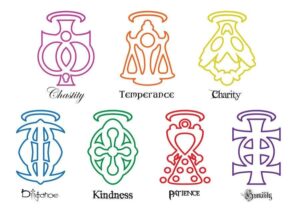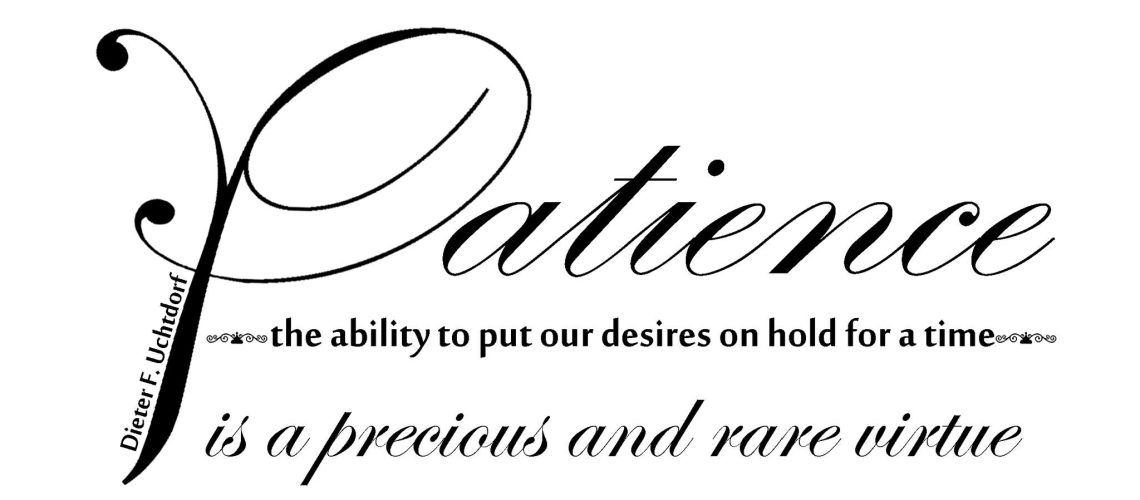 In the realm of moral and ethical values, patience indeed stands as the cornerstone, often referred to as the “Mother of All Virtues.” To understand why this is the case, it’s essential to explore the relationship between patience and other virtues, such as diligence, charity, chastity, humility, kindness, and temperance.
In the realm of moral and ethical values, patience indeed stands as the cornerstone, often referred to as the “Mother of All Virtues.” To understand why this is the case, it’s essential to explore the relationship between patience and other virtues, such as diligence, charity, chastity, humility, kindness, and temperance.
- DILIGENCE: Diligence is the quality of being persistent and dedicated to one’s efforts and responsibilities. Patience plays a crucial role in diligence by allowing individuals to persevere through challenges and setbacks without losing enthusiasm. Patience helps individuals maintain their focus and continue working towards their goals, even when progress is slow or obstacles are in their way.

Example: A diligent student may face difficulties in understanding a complex subject. Patience enables them to keep studying, seeking assistance, and gradually mastering the material.
- CHARITY: Charity is the act of showing love and compassion to others, often through acts of kindness and selflessness. Patience is essential in practicing charity, as it helps individuals empathize with the suffering and struggles of others. It allows them to listen, understand, and support those in need without judgment.
Example: When volunteering at a homeless shelter, patience is required to build trust with those who are experiencing difficult circumstances, offering a shoulder to lean on and a listening ear.
- CHASTITY: Chastity involves the responsible and virtuous expression of one’s sexuality. Patience is closely tied to chastity, as it empowers individuals to wait for the right time and context to express their desires, ensuring that their actions are guided by ethical considerations and respect for others.
 Example: A person practicing chastity may patiently wait for a committed, loving relationship before engaging in intimate activities.
Example: A person practicing chastity may patiently wait for a committed, loving relationship before engaging in intimate activities.
- HUMILITY: Humility is the quality of being modest and acknowledging one’s limitations. Patience plays a crucial role in cultivating humility because it encourages individuals to reflect on their experiences, accept their mistakes, and learn from them. It also enables them to accept criticism with grace and open-mindedness.
Example: When facing constructive criticism at work, a humble individual will patiently listen, reflect on their actions, and use the feedback to improve.
- KINDNESS: Kindness is the act of being friendly, generous, and considerate towards others. Patience enhances kindness by allowing individuals to give people the benefit of the doubt, understanding that everyone has their own struggles and imperfections. It enables individuals to respond to others with compassion rather than reacting impulsively.
Example: When dealing with a difficult colleague, patience can help you respond with kindness and attempt to understand their perspective instead of reacting negatively.
 TEMPERANCE: Temperance involves the practice of self-control and moderation in all aspects of life. Patience is closely linked to temperance as it helps individuals resist impulsive actions or overindulgence. By patiently assessing their desires and considering the consequences, individuals can make more rational and virtuous choices.
TEMPERANCE: Temperance involves the practice of self-control and moderation in all aspects of life. Patience is closely linked to temperance as it helps individuals resist impulsive actions or overindulgence. By patiently assessing their desires and considering the consequences, individuals can make more rational and virtuous choices.
 Example: When tempted to overeat at a social gathering, patience allows one to take a moment to reflect on their choices and practice temperance in their eating habits.
Example: When tempted to overeat at a social gathering, patience allows one to take a moment to reflect on their choices and practice temperance in their eating habits.
Now, as to why patience is considered the “Mother of All Virtues,” it can be understood as the foundational virtue that underpins and nurtures the development of all other virtues. Patience is the virtue that allows us to persevere in our efforts to practice virtues like diligence, charity, chastity, humility, kindness, and temperance. Without patience, these virtues might remain superficial or be easily abandoned when faced with adversity or temptation. Patience provides the inner strength needed to sustain our commitment to a virtuous living.
In summary, patience is the “Mother of All Virtues” because it empowers individuals to cultivate and practice other virtues, serving as the foundation for a virtuous and ethical life. It provides the resilience, understanding, and self-control necessary to live a life guided by principles of kindness, charity, diligence, humility, chastity, and temperance.

